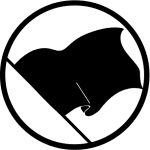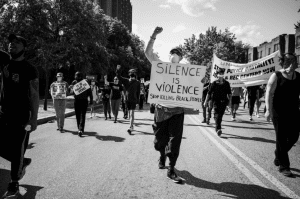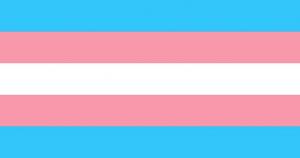So what are the leftist issues with free speech? They think it’s a bad thing, right, because of hate speech and whatever? Well, no. Now, left-wing discourse about freedom of speech and of the press is complicated and I am not an expert, but the basic points are these:
- Some speech endangers people.
- Some speech drowns out, or co-opts, other speech.

The first point is pretty obvious. Even in our First-Amendment-loving society, we have laws against things like libel or incitements to violence. The common principle of classical Liberalism, that our freedoms as individuals are limited by the freedoms of other individuals, is at work here: people have rights to life, liberty, privacy, and so forth, and using false or unduly inflammatory words to threaten those rights is therefore a limit on free speech rights. It’s easy to see how hate speech, regardless of its target (women, Black people, trans people, Catholics, immigrants), can have the same effects. This is why, even when such speech is legal, social norms in many circles and institutions punish hate speech, with anything from firing people to leaving a sarcastic comment on Facebook.
The typical difference between liberals and the Left here is that liberals tend to think of themselves as “value-neutral” in politics, and are therefore often very uncomfortable with these functions of social norms, except in cases where they’re already used to them and just think of them as “common sense,” rather than as the value judgments they in fact are. Leftists, on the other hand, tend to recognize and approve of both social opprobrium and deplatforming as ways to obstruct speech they consider harmful or dangerous—and in many cases, this is precisely because they don’t want the state doing it. There are leftists with authoritarian views, certainly, but there’s also a thriving tradition of anti-authoritarianism (that’s the whole raison d’être of antifa) and even of anarchism on the Left; accordingly, there are both strategic and philosophical reasons that leftists will work to mute hate speech at a grassroots level, yet not support or call for legislation against it.

The problem that some speech drowns out other speech is a little more complex. This can be quite literal at times: when Westboro Baptist Church started picketing gay people’s funerals, counter-demonstrators dressed as angels would use tactics like surrounding the mourners (thus blocking the homophobic demonstrators from view) and singing (to drown out their chants and slogans). Of course, this didn’t prevent the Westboro people from exercising their right to free speech, but it voided their ability to be heard by the people they wanted to speak to, which makes the distinction kind of academic. So, as good free speech advocates, who do we side with: the angels, or the churchgoers? They can’t both be heard; that’s why the angels are there. So who takes precedence, and on what grounds?
The issue may become a little clearer if we look at another context. Let’s say you host a book club, and one member turns out to be a neo-Nazi. If he is allowed to express his views freely, then in practice, you are not going to be able to have Black or Jewish or LGBTQ people in that book club, because he will attack them and their views and, depending on how fervent he is and how secure he feels, may actively try to get them kicked out; your insistence on letting him will make it clear to any minorities present that their human dignity, and even their safety, is less important to you than just letting him talk. Their liberty to exist and converse in that space is being effectively curtailed in favor of his liberty to degrade them. By contrast, if you refuse to let him air those views, he may or may not stick around, but they will be free to participate on an equal basis with everyone else. And this dynamic is actually implicitly recognized by most complaints about cancel culture. Getting criticized or even insulted does not technically inhibit your free speech, but it interferes with whether and when you are willing to speak at all. The contention of leftists is that sometimes, that’s appropriate.
The moral principle at work here is that views that intrinsically degrade the dignity or safety of other people do not deserve the same status, rights, or hearing as views that don’t. It doesn’t necessarily follow from this that we should bring the force of law in to suppress toxic views; but it does follow that we can make a meaningful moral calculus about how to rank speech at social and institutional levels, and it gives us a rule by which to determine—not “neutrally,” no, but justly—where in the hierarchy of protections a given view or act of speech rightly falls.

Originally I was planning to address the influence of power on Discourse™ and get into the issue of co-option that I mentioned above, but I think I’m going to leave those for a separate post.












